Mumbai gets a spacious hub in a heritage building on DN Road that will offer curated experiences across culture, heritage and literature, starting early December
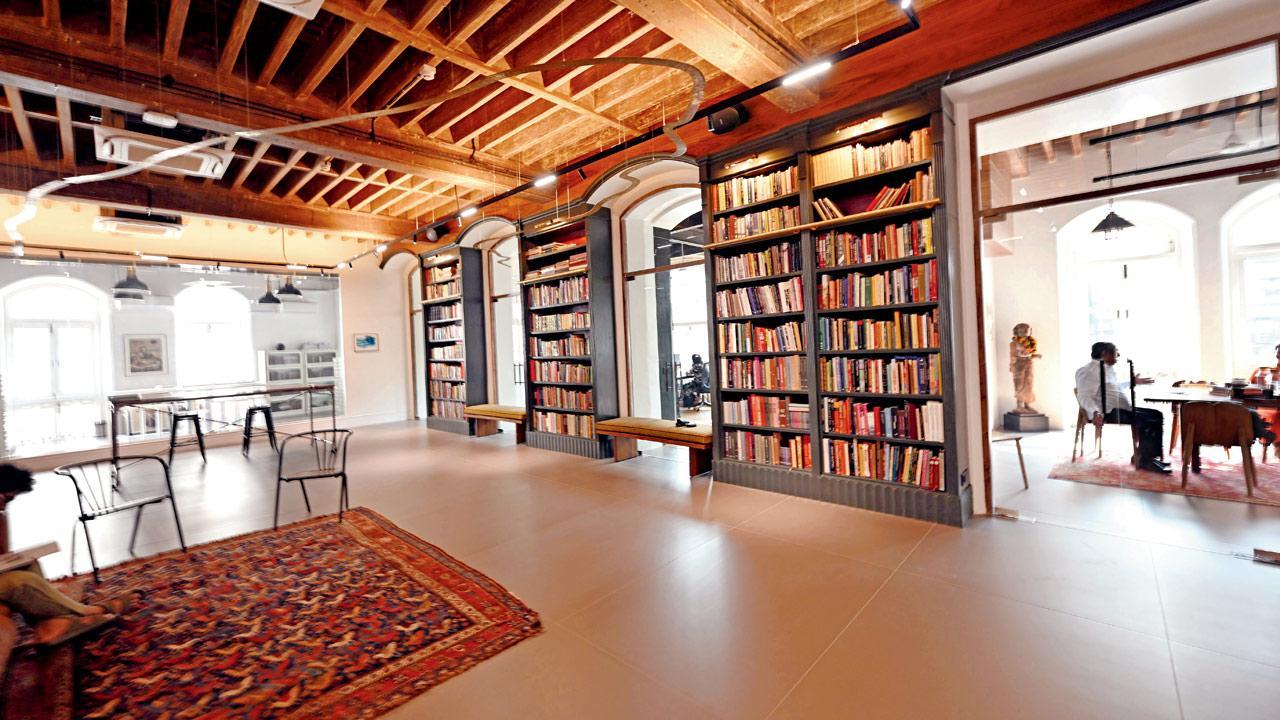
The space will host lectures, walkthroughs and exhibitions, and children’s workshops from December. Once home to a bank, the interiors have been restored by Pavitra Rajaram Design. It includes imposing Burma teak rafters, Malad stone exposed façades and cast-iron columns that do justice to its heritage value. Pics/Kirti Surve Parade
The obsession began when my father, PT Abraham gifted me a Vaseline jar filled with rare coins from Travancore [to remind him of his roots] when I moved to Delhi as a student,” recalls Paul Abraham, founder of Sarmaya Arts Foundation as he shares anecdotal snapshots of the journey from amateur collector to founder of an arts platform, and now proud occupant of a home for his sourced collection of coins, maps, photographs, contemporary art works, historical documents and 15,000-odd books in the heart of bustling DN Road. The incessant buzz of weekday traffic appears distant enough to not disturb his team. They are busy working towards D-Day in the tastefully restored address located on the second level of a 146-year-old building named after the city’s oldest optician brand, when the inaugural talk by historian Manu Pillai opens their calendar. “We want people to engage in the arts, culture and heritage, have intimate conversations and access our vast collection of books,” he shares, giving us the tour as morning sunlight streams in from the arched windows, bathing its restored interiors in a warm, inviting glow.
ADVERTISEMENT
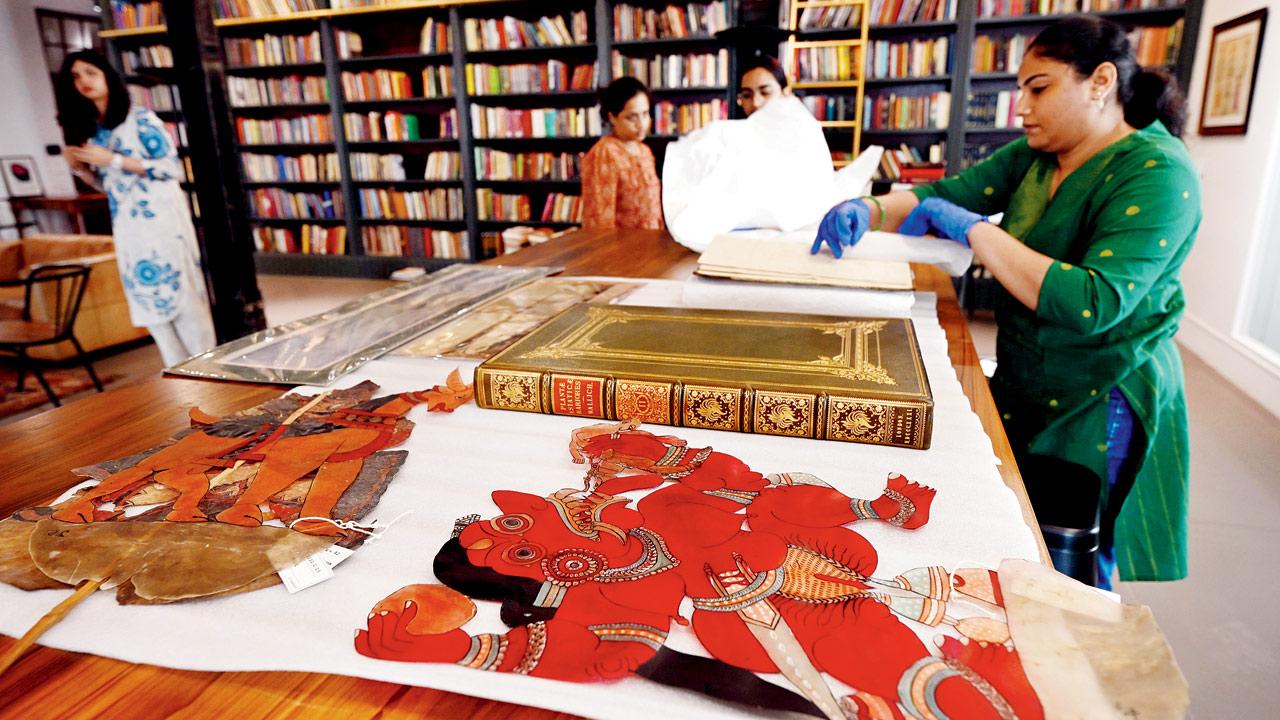
Members of the restoration team display rare books and artefacts (Tholu Bommalata shadow puppets) from their archive in the lab section
Half-way through our conversation with Abraham, we get a sense of the larger, envisioned picture: the arts platform intends to micro-curate this exhaustive, diverse collection in bite-sized modules — be it a theme-driven exhibition, a talk centred on a historically relevant book, or a walkthrough of the ancient maps and modern art from its envious archive. The passion that surfaced 40 years back, as Abraham reveals, has come to fruition in ways that he had never imagined. “Never did I think that this dream would be realised! My obsession for numismatics made me learn Urdu and I was able to decipher the etchings on coins’ surfaces. Since then, there’s been no turning back. I would meet collectors who were generous with information and sources.” Over time, this interest became a pursuit and took the form of an arts foundation that was built after hours of painstaking resource-gathering and sourcing of handpicked archival material from across the Indian Subcontinent.
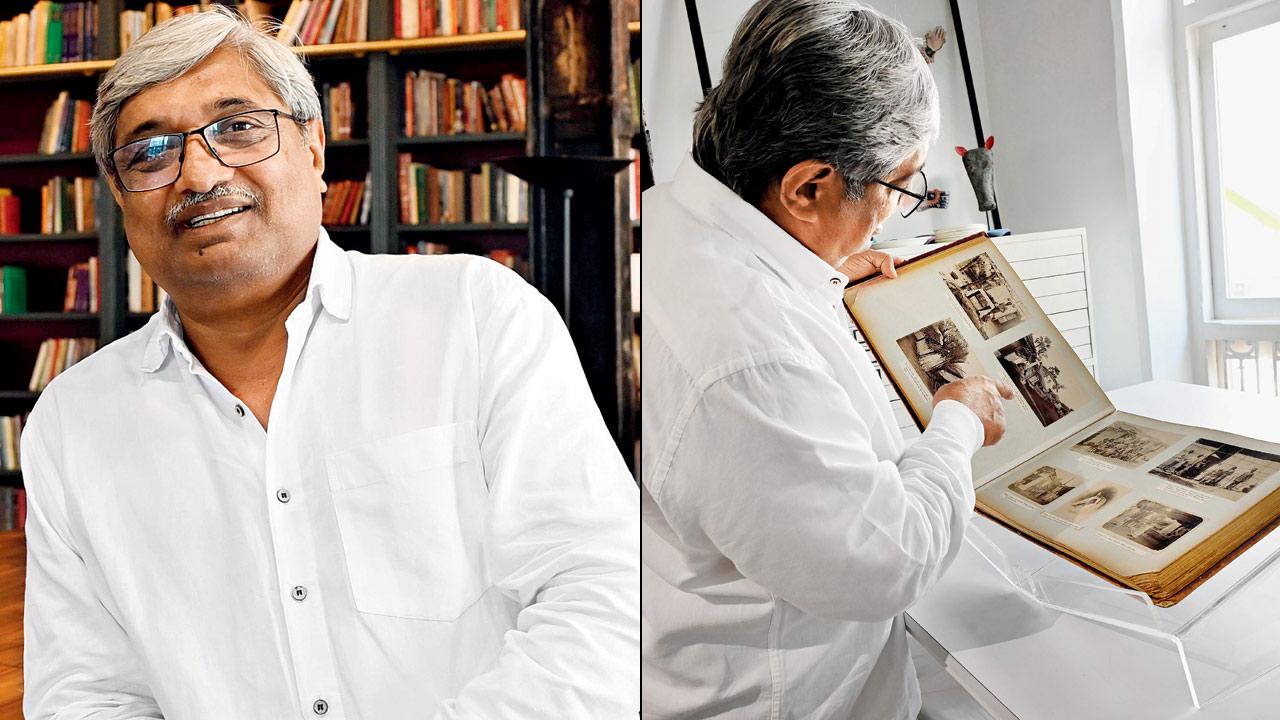
Paul Abraham opens a photo book that documented the Plague of Bombay (Title: Plague Visitation, Bombay; 1896-97) and its aftermath that includes images of records, sanitation and medical updates of that period
Founded in 2015 by Abraham and Pavitra Rajaram, Sarmaya Arts Foundation carved a niche in the city’s (and country’s) cultural calendar, hosting, talks, sessions, video walks and educational outreach programmes for school children in far flung parts of India. For the banker and arts patron, a leap of faith by setting up a physical space for the not-for-profit organisation, was important to offer access to like-minded citizens keen to immerse themselves in art and culture. At its Fort archive, we learn that Sarmaya will offer access to its collection and curated programming, especially for children, senior citizens, young adults and students. Its library — the pièce de résistance — reminds us of a scene from Hogwarts School of Witchcraft and Wizardry, and covers Indian art, culture and history. It will be open to researchers and students. As we move on to the restoration lab, the hub’s heartbeat, it is abuzz with activity. Here, artefacts and antiquities are carefully undergoing R&R to extend their historicity and age.
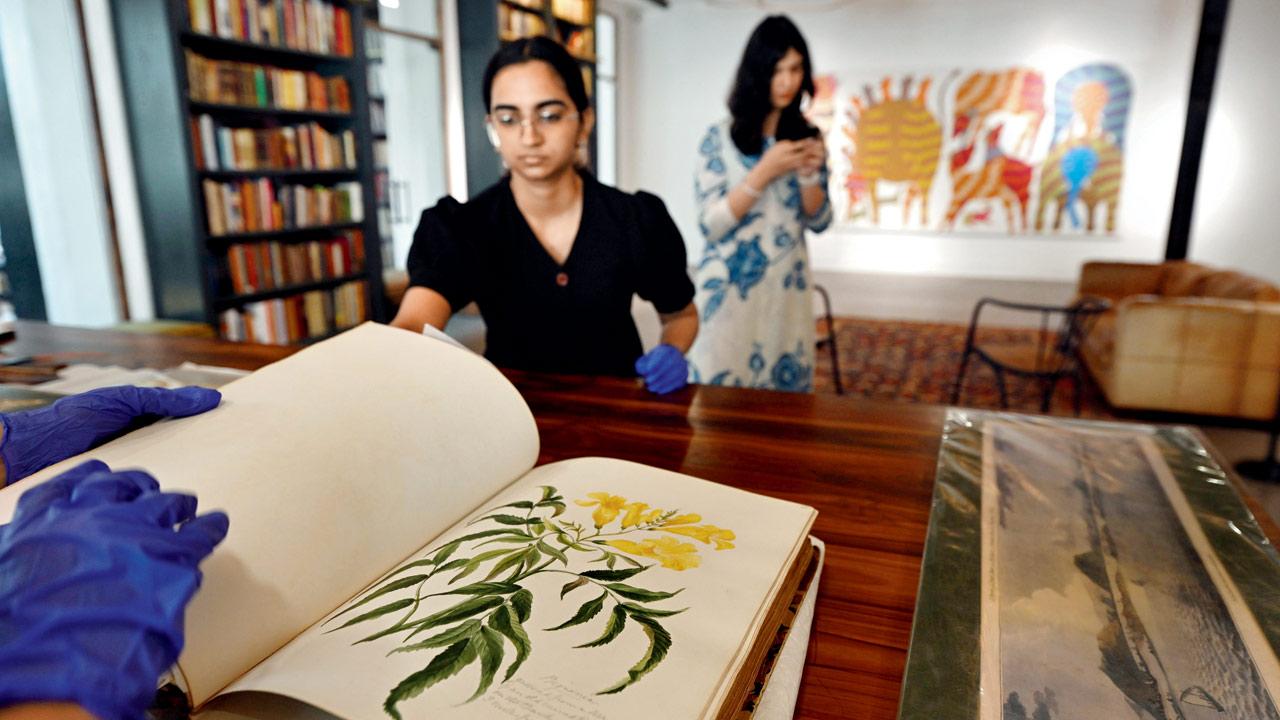
A page from Plantae Asiaticae Rariores by Nathaniel Wallich, dating back to 1831, includes stunning watercolours of ‘East Indian plants’ with detailed information of its origins and botanical significance
“We aim to make Sarmaya a space for intimate conversations on art, history, culture and all the stories in between,” Abraham reveals, as we come to the end of the tour. Silently, we wish that Mumbai’s philanthropists and visionaries take a cue from this initiative, and establish more spaces so the arts, culture and heritage don’t just survive but also thrive despite the madding crowd.
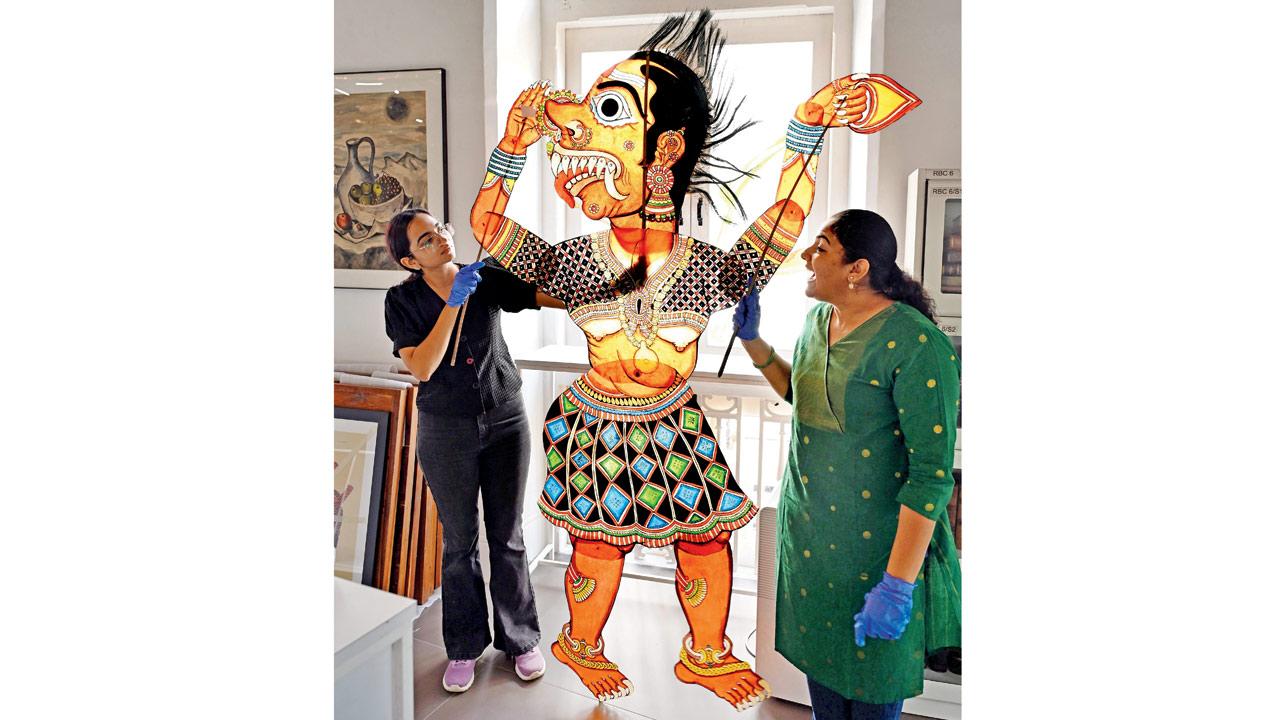
Their archive boasts of a 6-feet (approximate) high Tholu Bommalata puppet of Lankini, whose origins can be traced to Andhra Pradesh. This was a specially commissioned project
INAUGURAL TALK December 6; 6 pm onwards (Manu Pillai: Gods Guns and Missionaries: The Making of the Modern Hindu Identity)
AT Sarmaya Arts Foundation, 2nd floor, Lawrence & Mayo Building, Dr DN Road, Fort.
LOG ON TO sarmaya.in; @sarmaya_india (for upcoming events)
E-mail connect@sarmaya.in (to register)
Also Read: Enter the world of ceramic art with this festival in Mumbai
 Subscribe today by clicking the link and stay updated with the latest news!" Click here!
Subscribe today by clicking the link and stay updated with the latest news!" Click here!







